If you want to know more Duolingo alternatives for your language learning experience, this article can help you.
Learning a new language can be an exciting and enriching experience.
It offers not just the ability to communicate in a different tongue, but also the opportunity to dive into another culture.
While Duolingo has become a popular choice for many language learners, it might not suit everyone’s style or needs.
You might be looking for alternatives that offer a different approach to language learning.
Several language learning platforms have emerged, each with their unique features and methodologies.
Tools like Rosetta Stone are known for their immersive method, allowing you to learn through context rather than direct translation.
If you prefer a more structured course format with a focus on conversational skills, platforms like Babbel could be a better fit.
For those who are more visually inclined, apps such as FluentU use real-world videos to teach languages in a more engaging and realistic context.
Exploring different options might lead you to find a resource that complements your learning habits or even one that challenges you in new ways.
With a range of apps offering interactive flashcards, video-based lessons, and tailored review sessions, there’s a trove of Duolingo alternatives at your fingertips.
Whether you’re looking to hone your grammar, expand your vocabulary, or get conversational practice, the right tool is out there to help you on your language learning journey.
Popular Duolingo Alternatives
When you’re looking to diversify your language learning routine, several standout alternatives to Duolingo offer their own unique approach to mastering a new language.
1. Babbel
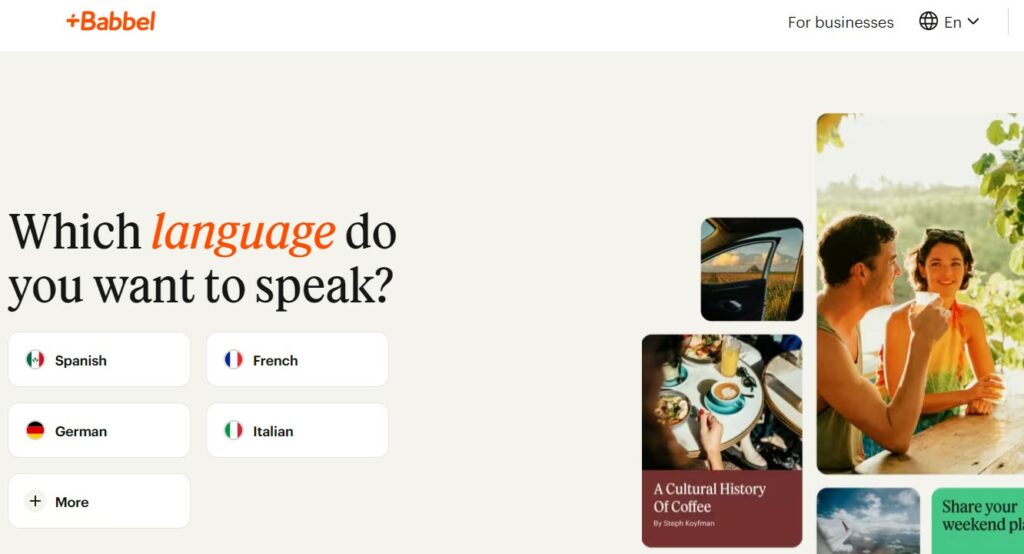
Babbel crafts each language lesson with the expertise of linguists to ensure that you’re getting high-quality, engaging content.
With Babbel, you download their app, create an account, and select the language you wish to learn.
Then, you can start with practical, real-world conversations.
2. Rosetta Stone
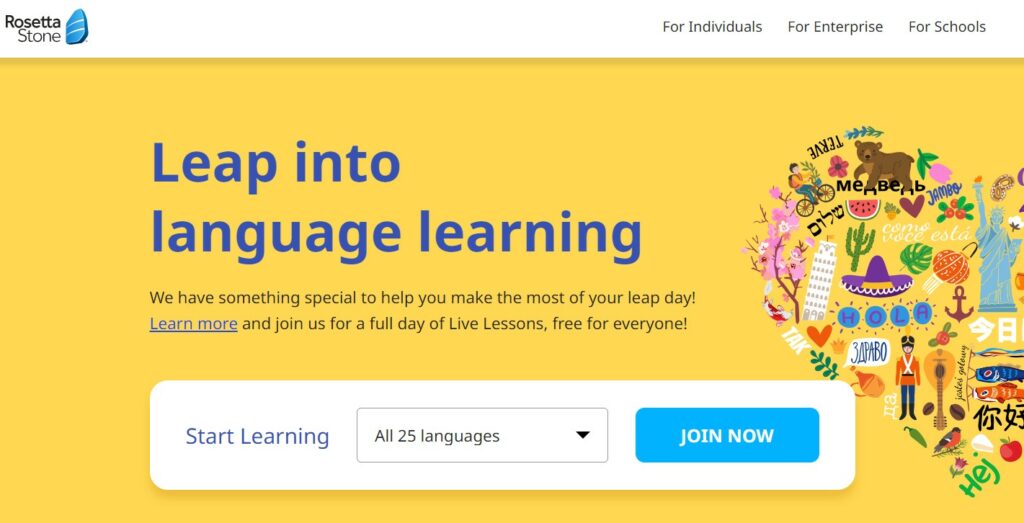
Rosetta Stone has been a trusted name in language learning for decades.
This platform utilizes immersive techniques, encouraging you to think in the new language.
You’ll match images with words and use context to understand meanings without tedious translation exercises.
3. Busuu
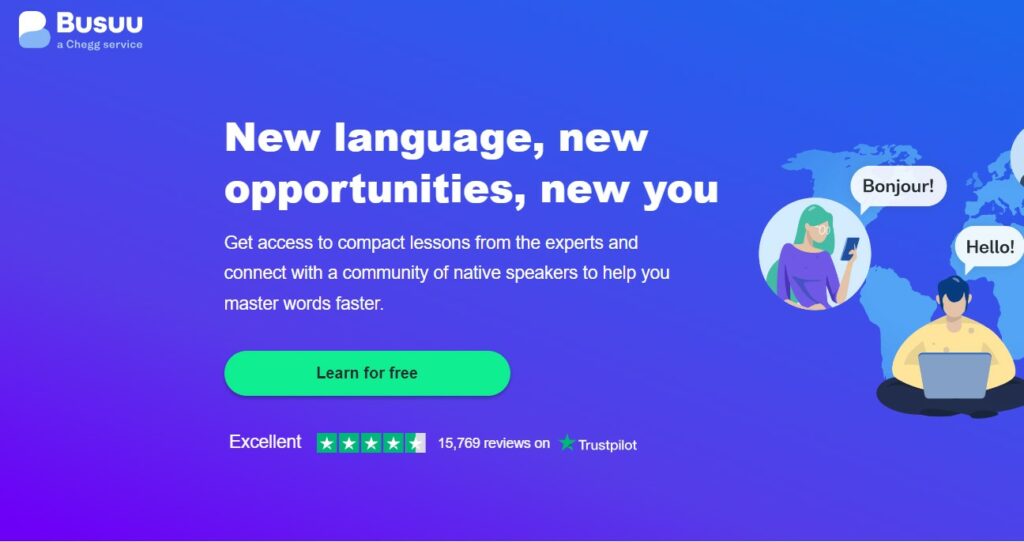
Busuu offers interaction with native speakers and personalized study plans aligned with your goals and proficiency level.
With Busuu, not only do you learn from structured lessons, but you also get to practice with a community that helps correct and guide your learning process.
Free Language Learning Resources
When looking for alternatives to Duolingo for mastering a new language, you have a multitude of free options at your fingertips.
Two standout resources are Memrise and Clozemaster, each offering unique features to bolster your language proficiency.
4. Memrise
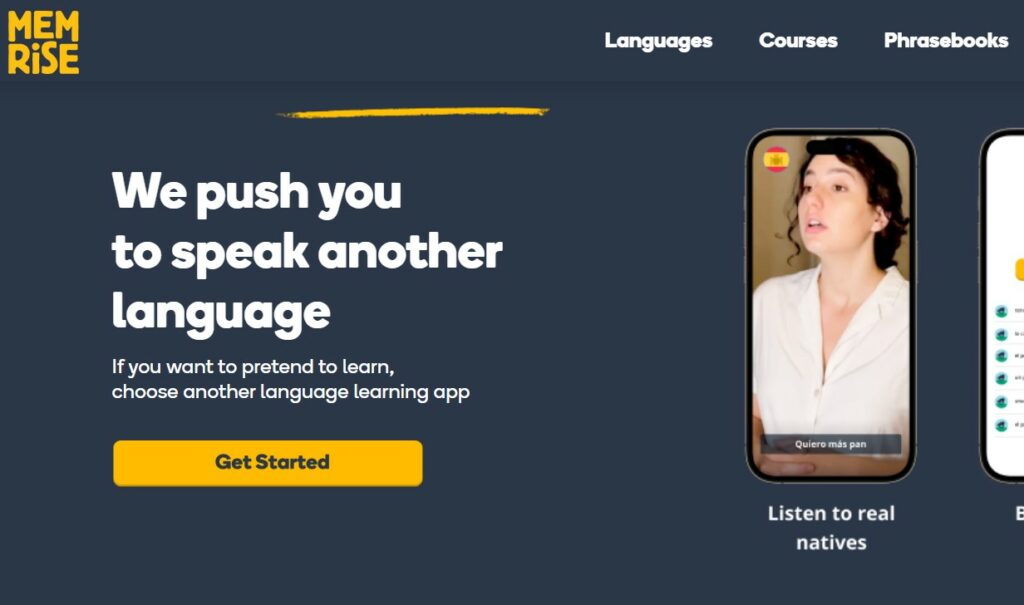
Memrise brings language learning to life with its engaging and interactive courses.
What sets Memrise apart is its use of mnemonic techniques and real-life language videos, which expose you to native speakers right from the start.
- Formats and Features:
- Gamified experience: Makes recall fun and efficient.
- Immersive content: Includes audio and video clips of native speakers.
- Courses available on the go: You can learn on iOS and Android devices.
5. Clozemaster
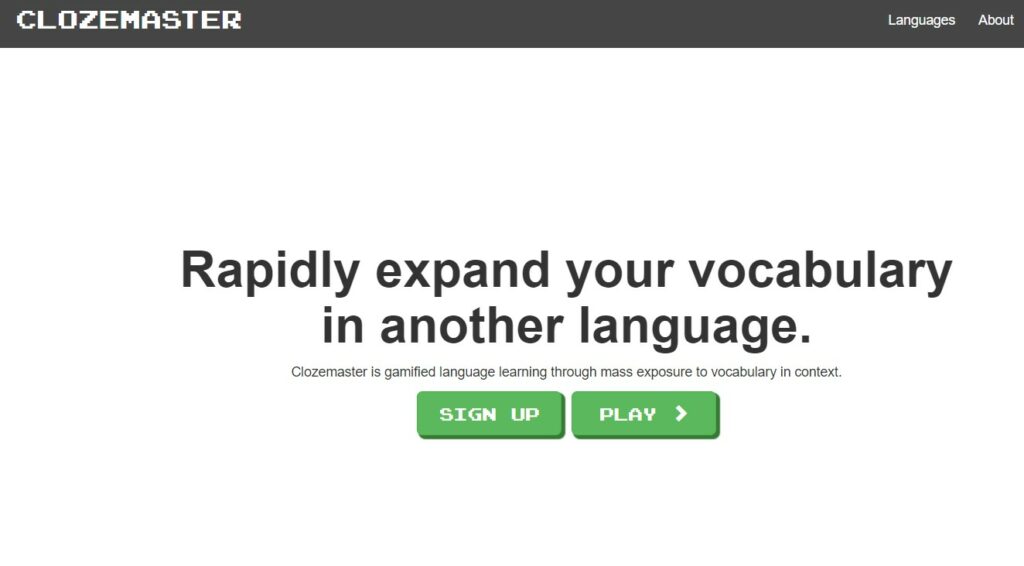
Clozemaster excels in contextual language learning, where you’ll be thrust into a game of mass sentence exposure to help you learn in context.
- Functionality Highlights:
- Drills through mass exposure: You’ll encounter a variety of sentences to improve comprehension and usage.
- Vocabulary building: Clozemaster focuses heavily on vocabulary in context, rather than isolated words.
Niche Language Learning Apps
When you’re eager to dive into a new language with a more personalized approach, niche language learning apps like HelloTalk and Tandem can offer unique experiences that tailor to your individual learning style.
6. HelloTalk
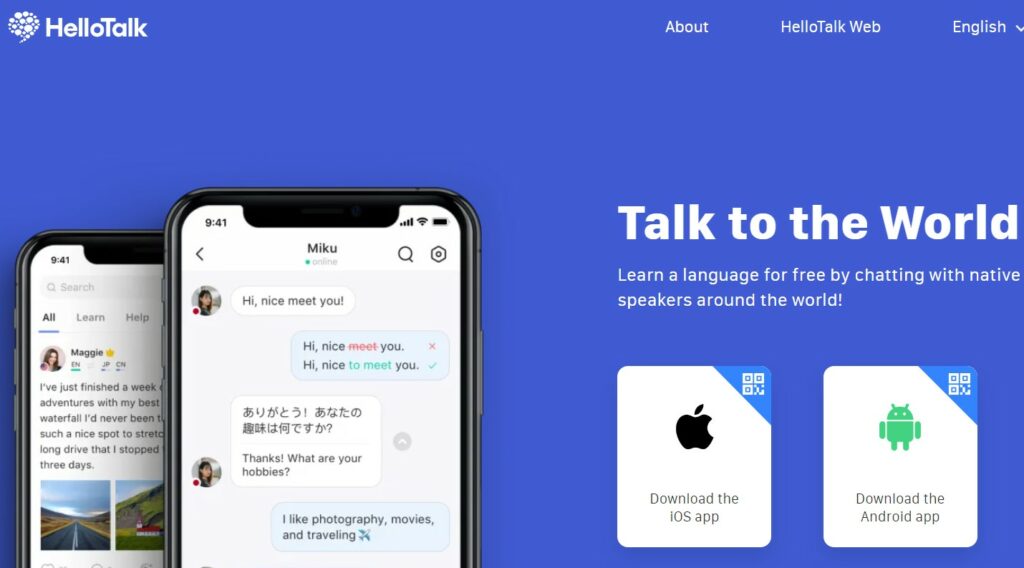
HelloTalk is an app that connects you with native speakers for language exchange.
By chatting with partners via text, voice messages, voice calls, and even video calls, you get to practice and learn a language in a dynamic and real conversational context.
The app also includes translation, correction, and speaking features to enhance your learning.
- Key Features:
- Language exchange with native speakers
- Text, voice messages, and calls
- In-app translation and correction tools
7. Tandem
Tandem offers a similar experience to HelloTalk, with the primary goal of connecting language learners with native speakers.
It serves as a platform for cultural exchange where you can teach your language skills while picking up on nuances of a language you’re learning through conversation.
- Key Features:
- Partner matching with native speakers
- Text, audio, and video conversations
- Tutoring services available for a more structured learning experience
Considerations for Choosing An Alternative
When selecting a language learning platform, your individual goals, the level of support you require, and budget constraints all play crucial roles in the decision-making process.
Goals and Motivation
To align with your language learning ambitions, it’s important to identify platforms that cater to your specific requirements.
If your goal is to achieve conversational fluency rapidly, look for solutions that emphasize speaking and listening skills.
For those focusing on academic or professional applications, platforms with extensive grammar exercises and vocabulary might be more suitable.
Community and Support
A robust learning environment often includes community interaction and comprehensive support.
If collaborative learning is high on your priority list, seek out platforms with active forums or conversation exchange features.
Personalized feedback can also be vital in language acquisition, so consider platforms where tutors or native speakers can offer direct assistance.
Pricing and Accessibility
Cost can be a decisive factor in your choice.
Some platforms offer free basic plans with the option to upgrade for additional features.
Evaluate your budget and compare subscription plans, keeping in mind that some sites provide discounts on longer commitments.
Accessibility is another consideration; ensure that the platform is compatible with your preferred devices and offers content in the language you wish to learn.
Key Takeaways
If you’re exploring language learning apps beyond Duolingo, here’s a succinct overview:
- MosaLingua: Focuses on practical vocabulary, aiming to teach the 20% of words you’ll use in 80% of situations.
- Babbel: Offers structured, official lessons that may be a step up from Duolingo’s gamified approach.
- iTalki: It’s an interactive platform where you can practice with language tutors and speakers.
- Rosetta Stone: A reputable program known for its immersive method.
Here’s how you might weigh your options:
| Feature | Duolingo | MosaLingua | Babbel | iTalki | Rosetta Stone |
|---|---|---|---|---|---|
| Practical Use | Moderate | High | High | High | High |
| Structure | Casual | Moderate | Formal | Varies | Formal |
| Interaction | Low | Low | Low | High | Moderate |
| Cost | Free | Varies | Paid | Varies | Paid |
Tips:
- Identify your learning goals.
- Consider how much interaction you want with tutors or native speakers.
- Evaluate if a structured curriculum or casual learning suits your style.
- Check if a free or paid app aligns with your budget.

